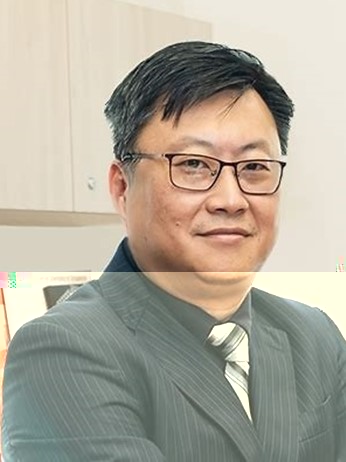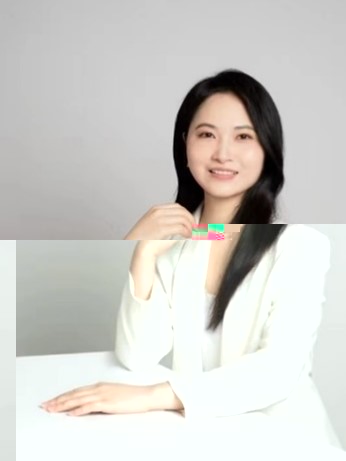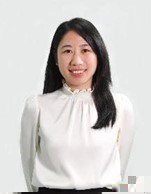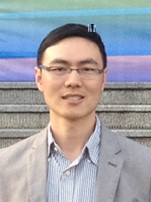
Prof. Hongzhe SUN is the Norman & Cecilia Yip Professor in Bioinorganic Chemistry at the University of Hong Kong. He received his Ph.D from the University of London (Birkbeck College) with Peter J Sadler. After two years’ postdoctoral research work at the University of Edinburgh, he joined the University of Hong Kong successively as an assistant professor to a chair professor. His research interests lie in biological inorganic chemistry and metallomics, particularly in the frontier of metalloproteomics and metallomics, discovery of antimicrobial and antiviral agents, and inorganic chemical biology. His seminal contributions to the field of metallomics/metalloproteomics have garnered significant recognition. For his pioneering work uncovering potential metallodrug binding proteins in pathogens, he was recently awarded the Dalton Horizon Prize (RSC, 2023), given to teams and collaborations that open new directions in contemporary chemical science through ground-breaking scientific developments. His recent interest lies in integrative metallomic approaches for overcoming emerging infectious diseases. He has published over 240 papers, and edited a book entitled “biological chemistry of arsenic, antimony and bismuth” (John Wiley, 2011). He is the recipient of the AsBIC Outstanding Achievement Award (2022), RGC Senior Research Fellow (2021), UC Berkeley Muetterties Lectureship (2018) and WuXi AppTech Life Chemistry Research Award (2016). He is an associate editor of the Journal of Biological Inorganic Chemistry (JBIC, Springer) and was a series editor of Metallobiology (RSC), and (advisory) editorial board member of Metallomics, Journal of Inorganic Biochemistry (JIB) and BioMetals. He has led the steering committee of Asian Biological Inorganic Chemistry for 14 years (2006-2020) and and has made significant contributions to AsBIC from organizing/ coordinating the committee events to promotion biological inorganic chemistry in Asia and Pacific Region. At HKU, he has served as an associate Head of Department of Chemistry (2019-2022) for three years. He was the council member of SBIC in 2018-2022 and currently chairs the Awards and Fellows Committee of the society. He believes that biological inorganic chemistry is an interdisciplinary area, playing a crucial role in chemistry (including materials and energy), biology, medicine and bioimaging. If elected as SBIC President, he would like to expand the community with more members and promote colleagues by establishment of awards (e.g. for mid-careers) and selection of Fellows to recognize colleagues’ achievement.

Prof. Kaibo WANG
Education and work:
Professor, China Pharmaceutical University, Natural Medicinal Chemistry, 2020-now,
Postdoctoral Research Fellow, Purdue University (USA), Medicinal Chemistry and Molecular Pharmacology (MCMP), 2017-2020,
PhD Degree, Shenyang Pharmaceutical University, Natural Medicinal Chemistry, 2011-2017 (During this time, I had been to the University of Arizona (USA) and Purdue University (USA) for joint training as a visiting scholar),
BS Degree, Shanxi Medical University, Traditional Chinese Medicine, 2007-2011.
Research Interests:
The biologically relevant DNA G-quadruplexes, in particular those formed in human oncogene promoters and telomeres, are emerging as novel molecular targets for cancer therapeutics. Our research interests focus on discovering and developing small molecular anticancer drugs that target DNA G-quadruplexes, from natural and synthetic chemistry by using a combination of biochemical, biophysical, and cellular methods.
Moreover, we are interested in the solution structure determination of DNA G-quadruplexes and their complexes with small molecules by NMR spectroscopy. Our work has been published in the top international journals, including Journal of the American Chemical Society, Nature Communications, Angewandte Chemie International Edition, and Organic letters. I have hosted several research projects, such as the National Natural Science Foundation of China, the Program for Jiangsu Province Innovative Research Scholar, the Natural Science Foundation of Jiangsu Province, the Scientific Research Foundation of Nanjing for Returned Chinese Scholar, and the Scientific Research Foundation for high-level faculty, China Pharmaceutical University, Nanjing, China.

Prof. Shuo HAN earned his Bachelor's degree in Chemical Biology, with a minor in Computer Science, from Tsinghua University in 2014. He pursued his Ph.D. under the guidance of Dr. Alice Ting at Stanford University from 2014 to 2020, during which he developed several advanced APEX proximity labeling technologies for mapping molecular interactions. Following his doctoral studies, he joined Dr. Philip Beachy's lab at Stanford as a postdoctoral fellow to investigate stem cell and tissue regeneration. Concurrently, he served as a part-time scientific advisor for Third Rock Ventures and Genentech. Dr. Han's research contributions have been published in prominent journals such as Cell, PNAS, and Cell Chemical Biology, and he holds a U.S. patent. In 2023, he established his own laboratory at the Shanghai Institute of Biochemistry and Cell Biology (SIBCB). His work has been honored with numerous awards, including the Damon Runyon Cancer Research Foundation Fellow Award, the Stanford Dean’s Fellowship, the Sammy Kuo Award in Neuroscience, the Bio-X William K. Bowes Fellowship, the Chinese Government Award for Outstanding Self-Financed Students Abroad, the NSFC Overseas Young Talent Program, and the National Key R&D Program Young Scientist Project, among others.

Prof. Hongtao ZHU received his Ph.D from Institute of Biophysics, Chinese Academy of Sciences in Ping Zhu lab in 2014. He continued to work in Ping Zhu lab for another year as a research assistant work. In 2015, he joined Eric Gouaux lab in Oregon Health & Science University, USA as a postdoc. After seven years postdoctoral research work, he joined Institute of Physics as a professor in 2022. His research mainly focuses on the structural mechanism of inhibitory ion channels including glycine receptor and GABA receptors, mainly using cryo electron microscopy and electrophysiology. In 2018, he and his collaborators solved tri-heteromeric GABAA receptor at near-atomic resolution for the first time, and the unprecedent details revealed in this work brought high impact in this field. In 2021, he revealed the partial agonism on glycine receptor which brings broad interests in discovering novel partial agonists to glycine receptor. In the same year, hongtao and his postdoctoral mentor solved the first native heteromeric glycine receptor and clearly defined the stoichiometry of the receptor, and this work have been recommended on Faulty Opinions for twice. His recent interests lie in the innate immune system of bacteria. Until now, Hongtao has published several high-quality papers as the first or corresponding author in Nature, Cell, eLife etc. Hongtao has been selected as the HYYQ in 2023 and One-hundred talented plan in Chinese Academy of Sciences in 2022.

Prof. Qian ZHAO Research focus on mass spectrometry, proteomics, novel functional peptides.
Academic qualifications:
2007-2012 Ph.D. in Chemistry, The University of Hong Kong,
2003-2007 B.S., National Talent Training Base of Life Science, Xi’an Jiaotong University.
Previous academic positions held:
2017-2023 Assistant Professor, The Hong Kong Polytechnic University,
2017-2017 Research Assistant Professor, Hong Kong Baptist University,
2014-2016 Postdoctoral Research Fellow, University of California San Francisco,
2013-2014 Investigator I, Novartis Institutes for Biomedical Research.
Present academic position:
(2023 July-now) Associate Professor, The Hong Kong Polytechnic University.
Awards and honors:
2024 “Rising Stars in Proteomics and Metabolomics” by the Journal of Proteome Research,
2021 “Emerging Investigators in Mass Spectrometry” by the Journal of the American Society for Mass Spectrometry,
2015 Gordon Conference Travel Award, 2011 Utrecht University Short-stay Fellowship.
Professional activities and service:
Editorial Board Member of “Molecular & Cellular Proteomics” and “Chinese Chemical Letters”, Council Member of The Human Proteome Organization (HUPO), Member of American Society for Mass Spectrometry, Active reviewer of “Molecular & Cellular Proteomics”, “Analytical Chemistry”, “Environmental Science & Technology”, “Theranostics”, “RSC Chemical Biology”, “Journal of Proteome Research”, “Chemical Science”, etc.

Prof Weehan Ang graduated from Imperial College, UK in 1995 with BSc(Hons) First Class under the Singapore Armed Forces Merit Scholarship to serve in the navy. A communications and electronic warfare specialist by training, he retired from service in 2003 to return to academia. He pursued his PhD studies with Prof Paul Dyson at École Polytechnique Fédérale de Lausanne, Switzerland till 2007, where he was awarded the EPFL Doctorate Award for best PhD thesis, and then his postdoctoral research at Massachusetts Institute of Technology, USA with Prof Stephen Lippard. He joined NUS in 2009 to embark on his independent academic career as an Assistant Professor and was recently promoted to Professor in 2024. Prof Ang’s current research lies at the intersection of inorganic chemistry and biology, and he is actively investigating new metal-containing compounds for use in cancer therapy and as targeted antibiotics. He is also passionate about the study of trace metals and their roles in flavour science, having co-founded a start-up company tHEMEat Co. developing alternative protein products with meat-like flavours. In his professional capacity, he chairs the National Environment Agency Advisory Committee on Hazardous Substances and Toxic Waste and sits on Executive Committee of the Society of Biological Inorganic Chemistry. Prof Ang has authored and co-authored over 100 research articles, 5 reviews and book chapters, and holds 7 patents.

Prof. Wenting LIU, Associate Professor of School of Chemistry, Sun Yat-Sen University, Guangzhou 510006, China.
E-mail: liuwenting@mail.sysu.edu.cn
Education
2009.09-2013.06, School of Chemistry and Chemical Engineering, Sun Yat-Sen University, BS in Chemistry.
2013.09-2018.06, School of Chemistry, Sun Yat-Sen University, PhD in Inorganic Chemistry (Adviser: Prof. Zong-Wan Mao).
2014.10-2016.10, University of Arizona / Purdue University, Joint PhD training in Medicinal Chemistry (Adviser: Prof. Danzhou Yang)
Work:
2018.08-2021.08, School of Chemistry, Sun Yat-Sen University, Post-doctoral Research (Adviser: Prof. Xiao-Ming Chen).
2021.09-2024.04, School of Chemistry, Sun Yat-Sen University, Associate Researcher.
2024.05-Present, School of Chemistry, Sun Yat-Sen University, Associate Professor.
Research Interests:
Chemical biological studies of G-quadruplex. Design and synthesis of selective small molecules targeted G-quadruplex. Nucleic acid NMR technology
Funds:
National Natural Science Foundation of China (22277151, 22007103), Natural Science Foundation of Guangdong Province (2024B1515020083, 2020A1515011439), Guangzhou Science and Technology Plan Project (2023A04J1941)

Prof. Christian Hartinger is a Professor in University of Auckland, School of Chemical Science. He will introduce Organometallic Compounds in Drug Development and Chemical Biology. The approaches taken to develop novel metal-based anticancer agents have considerably changed over the last 50 years since the discovery of the platinum drugs and focus now on compounds that interact with proteins overexpressed in tumor cells, show novel modes of DNA interactions or accumulate with higher selectivity in tumors, to name a few. Bioactive metal complexes are often considered promiscuous in their binding to proteins, in that they interact with a variety of proteins and a multitude of amino acids on a protein surface can be metallated. This confuscates the identification of specific interactions of relevance and bioactivity, as not all metalation events will contribute equally or may even be detrimental. The exception to this observation is the organometallic anticancer agent plecstatin-1, which was found to bind to plectin. In this contribution, I will discuss concepts we use in anticancer metallodrug design and chemical biology and metallomics strategies to interrogate their modes of action. I will focus on the impact of ligand structures on the binding of their organometallic complexes to proteins, which will be complemented by observations of unexpected reactions and surprising behavior in the presence of these biomolecules. These studies led us to develop an improved understanding of the driving forces for protein surface metalation and selectivity for some sites over others. Overall, it appears as a combination of parameters contributes to the selectivity of binding, including primary and secondary protein structures, steric demand of metal complex co-ligands and the presence of surface grooves with complementary features to those of the binding metal moieties that facilitate hydrophobic and/or electrostatic interactions.

Prof. Haibo WANG is a professor of Hangzhou Institute of Medicine (HIM), Chinese Academy of Sciences and the deputy director of the Intelligent Molecular Diagnosis Research Center of HIM. She received her BSc in Chemistry from Sun Yat-sen University (with Prof. Zongwan Mao) and PhD in Bioinorganic Chemistry from the University of Hong Kong (with Prof. Hongzhe Sun). Her PhD thesis focused on using metalloproteomics and metallomics approaches to uncover the mode-of-action of metal-based antimicrobial agents. She continued the research in HKU as a postdoctoral fellow on medicinal structure biology from 2018 Apr. to 2020. Dec. After another two years’ experience of research scientist in University of Zurich, Switzerland, with Prof. Roland K.O. Sigel, she joined HIM as an independent group leader since early of 2023. Her research group is aiming to integrate wet lab (including chemical biology, structure biology, medicinal chemistry, multi-omics etc) and dry lab (including bioinformatics, virtual screening, molecular modeling and machine learning) to achieve early diagnosis and better treatment of cancer and infectious diseases. Dr. Haibo Wang has published 23 papers in Nature Machine Intelligence, Nature Communications, PNAS, Chemical Science, CCS Chemistry, PloS Biology and Chemical Society Reviews and other journals. She received many awards, including Overseas Young Talent Scheme in 2023, the special prize CAIA award in 2021, the Best Young Scientist Award etc. Dr. Haibo Wang also served as the guest editor of Frontiers in Chemistry.

Prof. Deju YE is full professor in the School of Chemistry and Chemical Engineering at Nanjing University. He received his B. S. degree in Chemistry from Nanjing University in 2004 and his Ph.D. degree in Drug Design and Medicinal Chemistry with Prof. Hualiang Jiang and Prof. Hong Liu from SIMM (CAS) in 2009. After five years’ postdoctoral research work in Prof. Jianghong Rao’s lab in the Molecular Imaging Program at Stanford University (MIPS), he moved back to China and joined in Nanjing University as an associated professor in Oct 2014, and then promoted to full professor in Jun 2015. He is a P.I. in the State Key laboratory of Analytical Chemistry for Life Science, and a P.I. in the Chemical and Biomedical Innovation Center (CHEM-BIC) at Nanjing University. His research interests focus on the development of ‘smart’ multimodality molecular probes for non-invasive imaging of biomolecules. He has published over 100 papers, including Nat. Chem., Nat. Biomed. Eng.,Nat. Commun., JACS, Angew. Chem., etc. He is the recipient of the High-level Young Talent Programme (Oversea),IAAM Scientist Medal (2016), the National Science Fund for Excellent Young Scholars (2019) and Charming Mentor Award of Nanjing University (2022). He is currently the Executive Editor of Chemical & Biomedical Imaging, a new ACS journal.

Prof. Peng ZHENG is professor in School of Chemistry and Chemical Engineering at the Nanjing University. He received his Ph.D. from University of British Columbia, Canada. And he did postdoctoral research with Prof. Timothy Springer at Harvard Medical School. Then, he joined the Nanjing University as a professor. His research interests lie in chemical biology, single molecule techniques and protein design. He combined various techniques and methodology to study and design protein, such as atomic force microscopy imaging, Single-molecule force spectroscopy, molecular dynamics (MD) simulation, and machine learning.



